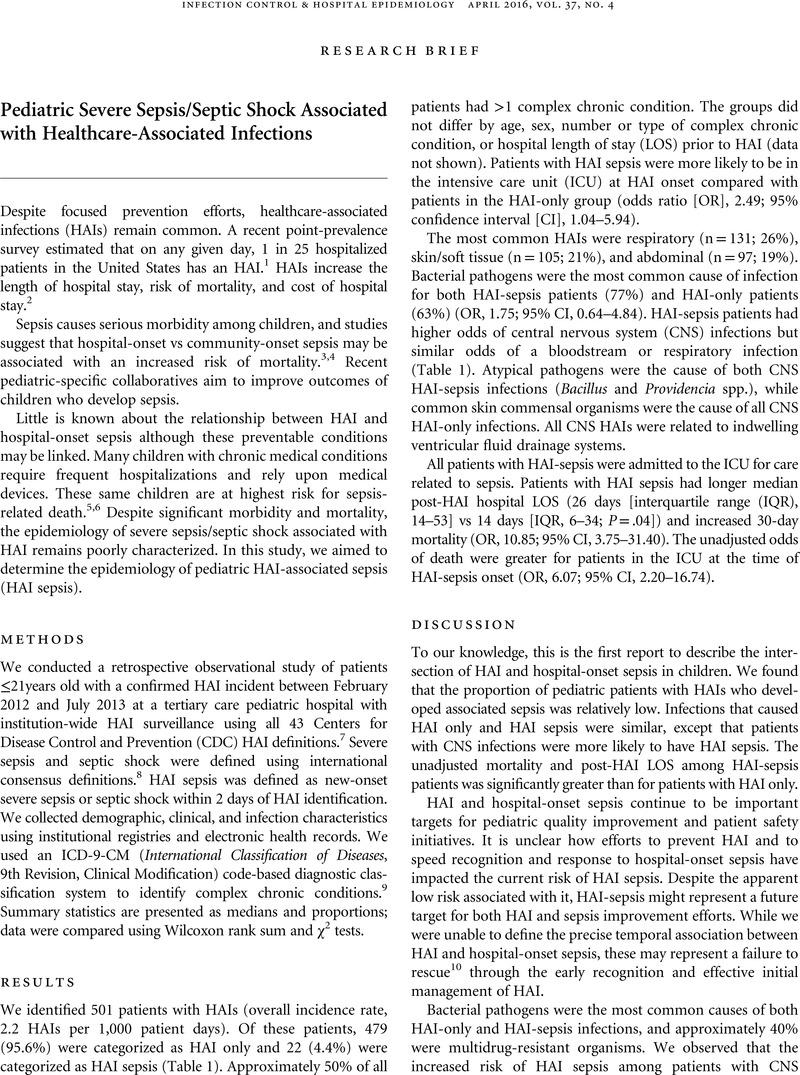Crossref Citations
This article has been cited by the following publications. This list is generated based on data provided by Crossref.
Schafer, Melissa
Gruhler De Souza, Heidi
Paul, Raina
Riggs, Ruth
Richardson, Troy
Conlon, Patricia
Duffy, Susan
Foster, Lauren Z.
Gunderson, Julie
Hall, David
Hatcher, Laura
Hess, Lauren M.
Kirkpatrick, Lauren
Kunar, Jillian
Lockwood, Justin
Lowerre, Tracy
McFadden, Vanessa
Raghavan, Anita
Rizzi, Jennifer
Stephen, Rebecca
Stokes, Stacey
Workman, Jennifer K.
and
Kandil, Sarah B.
2022.
Characteristics and Outcomes of Sepsis Presenting in Inpatient Pediatric Settings.
Hospital Pediatrics,
Vol. 12,
Issue. 12,
p.
1048.



